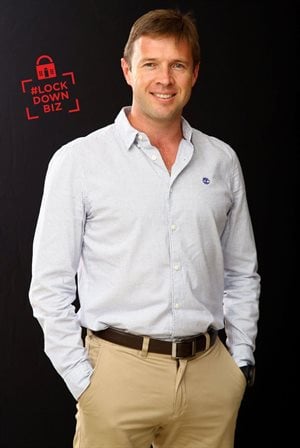
Top stories

ICTToo little, too concentrated: why AI startup funding in Africa needs rethinking
Claire Zanuso 6 hours





More news



ESG & Sustainability
Redisa calls on govt to fix South Africa’s “broken” waste management system

























While the current situation has really taken everyone into unchartered waters, the mining sector is no stranger to risk management. It has over the years also dealt with a range of health-related issues including infectious diseases, and this gives it a strong basis from which to respond to threats related to Covid-19 infections.
The responses at mine-level are likely to involve physical distancing, intensive disinfection routines and frequent testing, as well as contact-tracing procedures and the provision of isolation facilities. Movement of staff around sites, and especially underground, will be carefully managed to comply with post-lockdown regulations.
Systems will have to focus on those parts of the workforce most at risk of infection, so that these groups are effectively protected. Mines are well placed to negotiate the daunting challenge of patient confidentiality and minimising risks to employees. To minimise infection through early warning, there will also need to be much more random testing of employees who show no symptoms. This information could prove valuable in South Africa’s understanding of prevalence and risk and assist in optimising the tightrope government is walking between economic damage from the lockdown and the damage from widespread illness.
There is also likely to be restricted access to mines by service providers and consultants, encouraging the development and utilisation of remote methods of communication and delivery of services. Like everyone else, we have been unable to visit our mining clients in the way we normally would, but have made extensive use of various technologies to continue making our contribution.
These range from replacing on-site meetings with online meetings by using digital platforms, to the innovative use of GPS and imaging technologies to gather data in collaboration with mine-based clients.
Over the years, we have developed tools that leverage the power of geo-tagged images to help analyse geo-technical properties on rock-faces, for example. Related technologies include the use of drones to gather high-quality images in open pits. These are all proving useful as we forge ways to operate remotely without compromising the quality of our work, while prioritising safety and health across the board.
This flexibility to work remotely will become more important as mines respond to infection outbreaks as quickly and effectively as they can. Mines will need the steady inflow of products and services from suppliers, but at the same time will have to be prepared to rapidly tighten controls where there is heightened threat of the virus spreading.
Equally important to on-site controls, will be the way that mines communicate and interact with their local communities – especially where there is regular movement of employees between the mine and community.
This is where mines will need to engage actively with community stakeholders, to develop strong collaborative relationships based on trust and common purpose. Where a mine’s Covid-19 testing systems pick up infections, there will often be an impact on the local community – perhaps even the need to isolate groups of people who are not on the mine. We are actively exploring combining our knowledge of communities and mining with medical and epidemiological expertise to negate misinformation and aid safe economic activity – in the interests of all stakeholders.
Cooperation may not always be easy to forge, as any form of isolation or lockdown can severely undermine the economic security in these communities. There is considerable risk to a mine’s social licence if these issues are not skilfully managed – a process that calls for the active involvement of local and provincial government agencies.